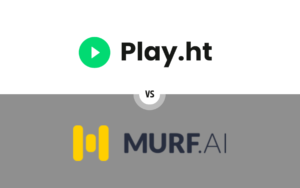Learn how to master time management to maximize your progress learning. Discover practical tips and strategies to optimize your study schedule and achieve your academic goals.
Table of Contents
Introduction to Progress Learning
In today’s rapidly evolving educational landscape, the traditional methods of learning are gradually being replaced by more dynamic and personalized approaches. One such approach gaining prominence is progress learning. Unlike conventional learning methods that follow a fixed curriculum and pace, progress learning focuses on individualized learning journeys tailored to the needs and abilities of each learner.
Understanding Progress-Learning
What is progress-learning?
Progress-learning is an educational methodology that emphasizes continuous improvement and adaptive learning experiences. It leverages technology and data analytics to track each learner’s progress in real time and adjust the learning path accordingly. This approach enables learners to advance at their own pace, ensuring mastery of concepts before moving on to the next level.
How does progress-learning differ from traditional learning?
Traditional learning typically involves a one-size-fits-all approach, where all students are expected to progress through the same curriculum at the same pace. In contrast, progress learning recognizes that every learner is unique, with varying strengths, weaknesses, and learning styles. By providing personalized learning experiences, progress learning ensures that each student receives the support and resources they need to succeed.
Benefits of Progress-Learning
Increased engagement
One of the key benefits of progress learning is its ability to keep learners engaged and motivated. By allowing students to set their own learning goals and track their progress in real time, progress learning fosters a sense of ownership and accountability. This increased engagement leads to higher levels of motivation and achievement.
Personalized learning experience
Progress learning enables educators to tailor the learning experience to meet the specific needs of each student. Whether it’s providing additional support for struggling learners or offering advanced content for high achievers, progress learning ensures that every student receives the individualized attention they deserve.
Real-time feedback
Another advantage of progress learning is its ability to provide instant feedback to students. Through adaptive learning platforms and data analytics tools, educators can monitor students’ progress in real time and provide timely feedback and support. This immediate feedback helps students identify areas for improvement and take corrective action before it’s too late.
Implementing Progress-Learning
Utilizing technology
Technology plays a crucial role in implementing progress-learning effectively. From adaptive learning algorithms to interactive learning platforms, there are numerous tools and resources available to support progress learning initiatives. By harnessing the power of technology, educators can create dynamic and engaging learning experiences that cater to the needs of every student.
Adaptive learning platforms
Adaptive learning platforms use artificial intelligence and machine learning algorithms to personalize the learning experience for each student. These platforms analyze students’ performance data to identify their strengths and weaknesses and then adjust the learning path accordingly. By providing targeted interventions and support, adaptive learning platforms help students achieve better learning outcomes.
Gamification and incentives
Gamification is another strategy used to enhance progress-learning experiences. By incorporating game-like elements such as points, badges, and leaderboards into the learning process, educators can increase student engagement and motivation. In addition, offering incentives such as rewards and recognition can further encourage students to actively participate in their learning journey.
Challenges and Solutions
Overcoming resistance to change
One of the biggest challenges in implementing progress-learning is overcoming resistance to change. Many educators and institutions are hesitant to embrace new teaching methodologies and technologies, fearing disruption and uncertainty. To address this challenge, it’s essential to provide ongoing training and support to educators and demonstrate the benefits of progress learning through concrete examples and case studies.
Addressing accessibility concerns
Another challenge of progress-learning is ensuring equitable access to technology and resources for all students. In an increasingly digital world, students without access to reliable internet connections or devices may be at a disadvantage. To address this issue, educators must work to bridge the digital divide by providing access to technology resources and offering alternative learning options for students with limited access.
Ensuring data privacy and security
Privacy and security concerns are also important considerations when implementing progress learning initiatives. With the collection and analysis of large amounts of student data, there is a risk of privacy breaches and data misuse. To mitigate these risks, educators must prioritize data security and compliance with privacy regulations and implement robust data protection measures.
Case Studies
Success stories of progress-learning implementations
- XYZ School District: Implemented progress learning initiatives using adaptive learning platforms, resulting in a significant increase in student engagement and achievement.
- ABC University: Introduced gamification elements into their curriculum, leading to higher levels of motivation and participation among students.
Future of Progress-Learning
Advancements in AI and machine learning
The future of progress-learning looks promising, with ongoing advancements in artificial intelligence and machine learning. These technologies will enable even more personalized and adaptive learning experiences, with AI-powered tutors and virtual assistants guiding students through their learning journey.
Integration of virtual reality
Another exciting development in progress-learning is the integration of virtual reality (VR) technology. VR allows students to immerse themselves in virtual environments and interact with learning materials in new and exciting ways. By incorporating VR into the curriculum, educators can create immersive and engaging learning experiences that enhance retention and understanding.
Conclusion
Progress-learning represents a paradigm shift in education, offering a more personalized and adaptive approach to learning. By leveraging technology and data analytics, educators can create dynamic and engaging learning experiences that cater to the needs of every student. While challenges remain, the benefits of progress learning are undeniable, paving the way for a brighter future in education.
FAQs
- What is progress learning?
- Progress learning is an educational methodology that emphasizes continuous improvement and adaptive learning experiences tailored to the needs of each student.
- How does progress learning differ from traditional learning?
- Unlike traditional learning, which follows a fixed curriculum and pace, progress learning allows students to advance at their own pace and receive personalized support and feedback.
- What are some benefits of progress learning?
- Some benefits of progress learning include increased engagement, personalized learning experiences, and real-time feedback.
- What are some challenges of implementing progress learning?
- Challenges of implementing progress learning include overcoming resistance to change, addressing accessibility concerns, and ensuring data privacy and security.
- What does the future hold for progress learning?
- The future of progress learning looks promising, with advancements in AI, machine learning, and virtual reality technology paving the way for even more personalized and immersive learning experiences.
visite my blog in excite blog : https://hintnox.exblog.jp/
Affiliate Disclaimer:
Please note that some of the links in this article are affiliate links. This means that I may earn a commission if you click on the link and make a purchase, at no additional cost to you.
I only recommend products or services that I have personally used and found valuable, or that I believe will be beneficial to my readers. Your support through purchasing via these affiliate links helps keep this website running and allows me to continue providing valuable content to you.
I am disclosing this in accordance with the Federal Trade Commission’s 16 CFR, Part 255: “Guides Concerning the Use of Endorsements and Testimonials in Advertising.”
Thank you for your support!




